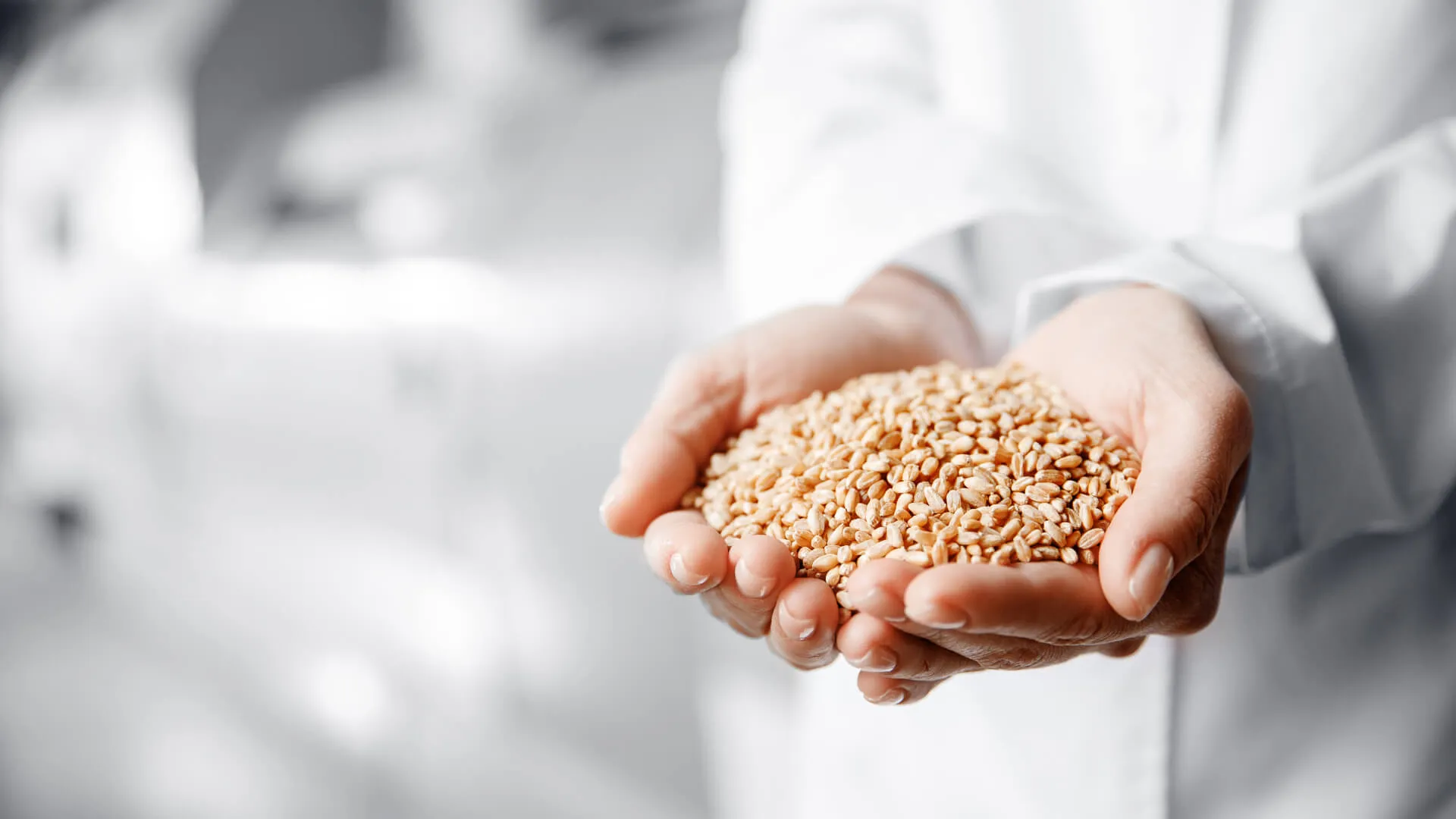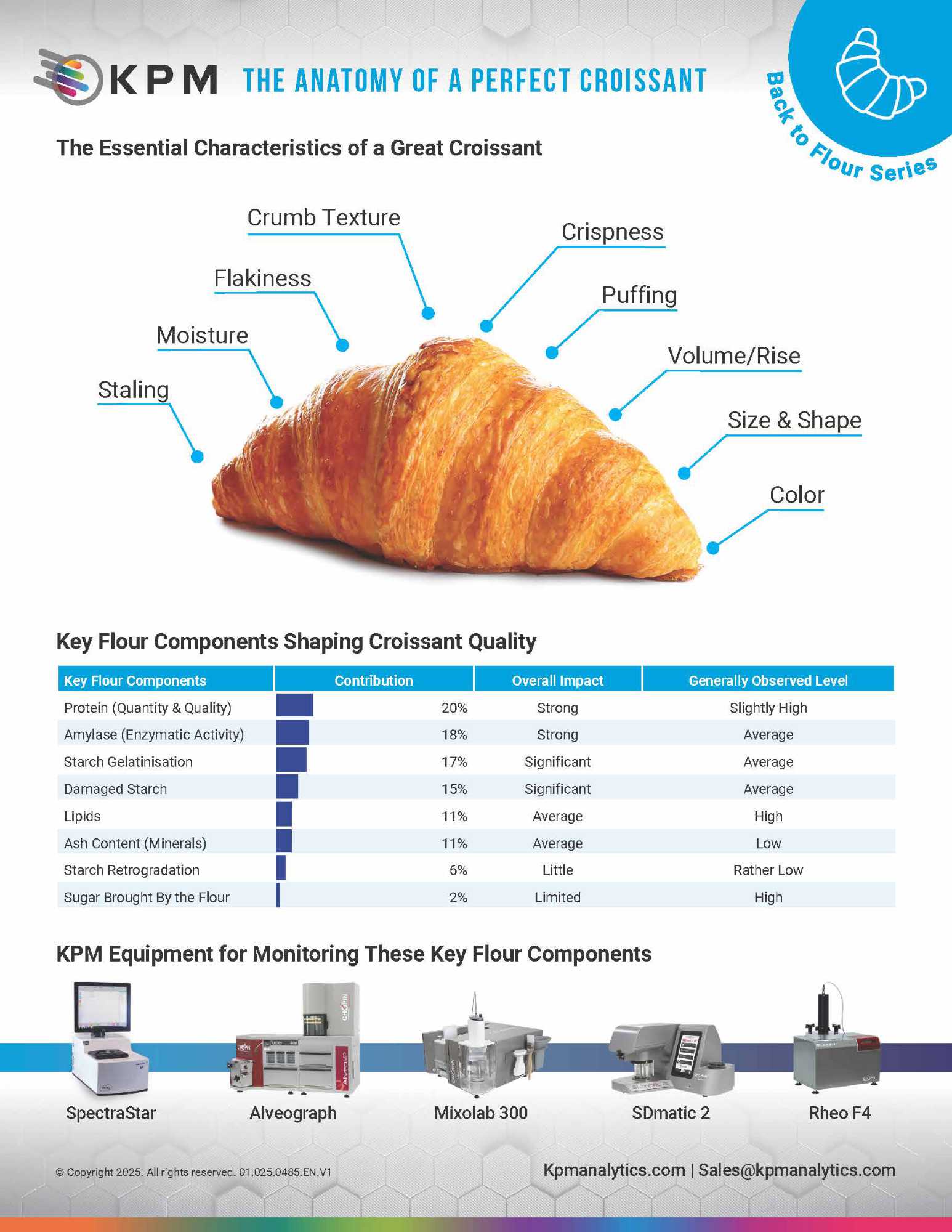Back to Flour - Croissant Quality Explained Video

Croissants: Famous Worldwide, Unique Everywhere
There’s no single definition of the perfect croissant. Whether artisanal and handcrafted or produced on a large industrial scale, each variation carries its own character—shaped by recipe, process, and consumer expectations.
But across all styles, one element remains constant: flour quality plays a central role in defining the product’s texture, appearance, and freshness.
Inside the Back to Flour Series: Croissant Quality
In the At the Table video from the Back to Flour Series, we explore how flour composition directly impacts the sensory and technical attributes consumers expect from a croissant.
Key quality attributes include:
- Flakiness & Crispness – the layered texture and crunch that define the first bite.
- Volume / Rise & Puffing – the light, airy structure customers look for inside.
- Crumb Texture & Moisture – tenderness and freshness that influence mouthfeel.
- Color – the golden crust, often associated with baking quality.
- Size & Shape – visual appeal and consistency across production.
- Staling – how long the product keeps its desirable qualities.
The video shows how proteins, starch, enzymes, lipids, and ash in flour influence each of these critical characteristics.
Learn More & Download Resources
Watch the Croissant video and explore the entire Back to Flour Series for deeper insights into bakery quality and flour science (English only):
Discover the Back to Flour Series on our Blog
For a quick technical summary, download the PDF:



